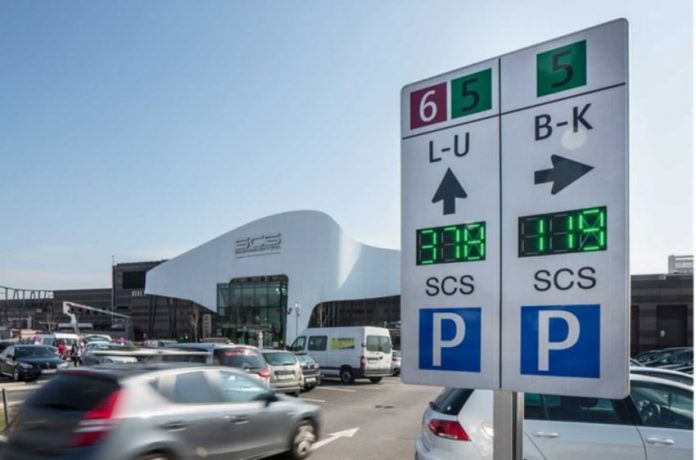The sensors will be connected via NB-IoT and will allow users to see available parking spaces via an app
German operator Deutsche Telekom started to install a new network of sensors on parking spaces in downtown Hamburg, in Germany.
The telco said that these sensors will allow uses to see free downtown parking facilities through a smartphone device. The service will be available on Deutsche Telekom’s Park and Joy app, which has been available since 2017 but initially focused on paying for parking.
The app was upgraded this month to include a new functionality that helps users to find empty parking spaces, the telco said.
The first 100 connected parking sensors are now being installed in the Wandsbek district, with up to 11,000 sensors planned in the entire Hamburg downtown area through the end of 2019.
“Residents and the city administration benefit from digital services such as our parking app. We spend an average 20 minutes looking for a parking space. This clogs up roads and increases exhaust emissions in the city center. Here we aim to provide a solution with Park and Joy,” said Oliver Bahns, head of Connected Mobility at T-Systems. “Other major cities are also set to benefit from the new service. The aim is to make the app usable throughout Germany.” Cities looking to roll out the digital parking management system this year in partnership with Deutsche Telekom include Bonn, Darmstadt, Dortmund, Duisburg, Hagen and Moers.
For the City of Hamburg, the introduction of smart parking is an important element in its strategy for using Intelligent Transport Systems (ITS). “As host of the ITS World Congress 2021 we are going to use all the technical resources to minimize for local residents the congestion associated with cars looking somewhere to park. An intelligent traffic infrastructure is key to becoming a model city for smart mobility and smart city logistics solutions,” said Bernd Krösser, State Councilor of the Free and Hanseatic City of Hamburg for Internal Affairs.
Subscribe now to get the daily newsletter from RCR Wireless News
Deutsche Telekom is installing parking sensors which send information on parking space occupancy via NB-IoT technology.
In September last year, Deutsche Telekom announced it was working with the city government of Bonn, in Germany, to implement a smart parking initiative in the city. The pilot project is scheduled to start in 2018. By the end of 2019, a large proportion of the city center’s managed parking spaces are to be networked, Deutsche Telekom said.
In the following phase, multi-story car parks and private parking spaces are to be integrated into the network as well and the smart city solution expanded to include connections to public transportation. The meshed network will allow drivers to advance book parking spots in gated areas such as multi-story car parks.
Over the next two years paid parking spots in the city center of Bonn will be equipped with sensors, so that vacant spaces can be displayed in the app in real time. The sensors indicate whether a parking space is vacant by communicating through a narrowband internet of things (NB-IoT) solution.
In related news, the German operator has recently joined the Industrial Internet Consortium (IIC). The Industrial Internet Consortium promotes the adoption of the industrial internet on a global scale with a cross-industry oriented approach, including smart city solutions, the manufacturing industry, energy, healthcare and transportation.

